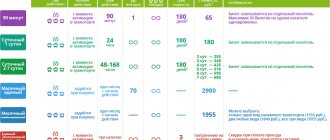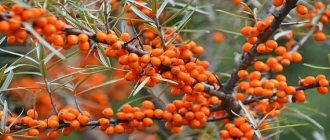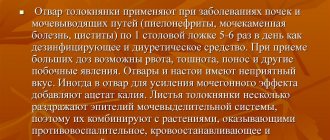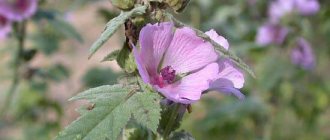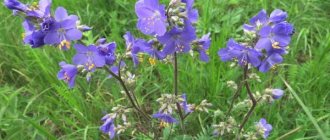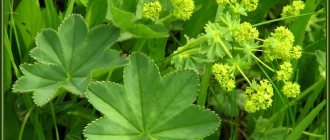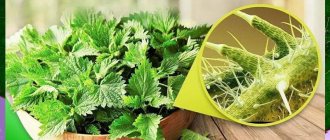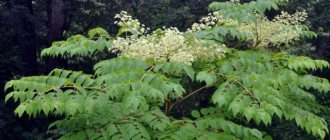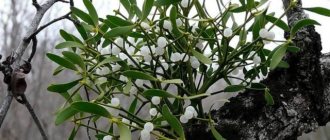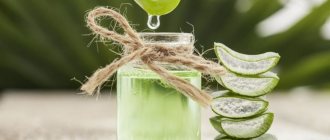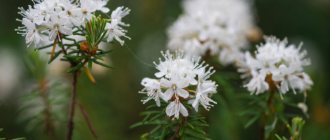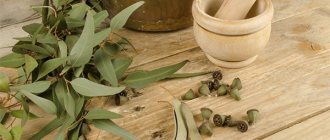The leaves have the greatest medicinal value. Avicenna recommended using them to stop bleeding caused by tumors, ulcers, as well as inflammation of the eyes, kidney disease, liver disease and elephantiasis. They have found application not only in folk medicine, but also in cooking and cosmetology. Knowing all the medicinal properties and contraindications of plantain leaves, you can safely use them for many diseases. The plant has a number of interesting folk names. For example, seven-core traveler, rannik, grandma, boil grass, cutter, roadside.
Plantain beneficial properties
Everyone knows that plantain juice, being an excellent natural antiseptic, can quickly relieve inflammation, heal and help quickly heal open wounds. It has a positive effect on gastric secretory function, has an expectorant effect, and cleanses the blood. Using an infusion of leaves, you can get rid of cough, it helps in the fight against respiratory diseases. It is used in the treatment of pulmonary tuberculosis, pleurisy, asthma, whooping cough.
Specially conducted scientific studies have proven that the leaves of the medicinal plant contain substances that affect cholesterol. Greater plantain extract is used in the treatment of severe forms of peptic ulcer.
Antibacterial properties are used in the treatment of diseases associated with dangerous microbes, viruses, E. coli, and various staphylococci.
Gastritis, enteritis, stomach and duodenal ulcers, inflammation of the bladder, skin diseases, hemorrhoids are treated with the use of medicinal plantain.
Pharmacological properties
For medicinal purposes, plantain leaves are used, which contain large quantities of mucus, glycosides, polysaccharides, tannins, bitterness, phytoncides, flavonoids, sorbitol, mannitol, some organic acids, such as citric and salicylic, alkaloids, choline, carotenoids , vitamins K and C, chlorophyll and factor T (the same one that promotes rapid blood clotting). The leaves of the great plantain also contain a huge amount of calcium, potassium, magnesium, barium, boron, copper and bromine.
If in ancient medicine plantain was considered exclusively a hemostatic and wound-healing agent, today its abilities also include diuretic, expectorant, and hypoglycemic properties.
Traditional medicine uses this plant as a general strengthening, anti-inflammatory, soothing, bactericidal, emollient. It is prescribed to patients with diathesis, eczema, psoriasis, diabetes and other allergic reactions.
Preparations made from plantain activate digestive processes, increase or restore appetite, and are prescribed for bloating, colitis, stomach ulcers, gastric tumors, and gallbladder diseases.
Plantain seed decoction or juice from the fresh plant is an ideal expectorant for severe coughs. Taking juice or decoction can be combined with honey for bronchial asthma, tuberculosis, hemoptysis, lung cancer, whooping cough.
Tincture of fresh plantain leaves tones up overwork, chronic fatigue, loss of strength, anemia, diabetes mellitus, atherosclerosis, hypertension, kidney diseases, inflammatory process of the genitourinary system, night urinary incontinence. To relieve symptoms of toxicosis during pregnancy, juice or infusion of fresh plantain leaves is used. Taking these drugs is also recommended for intoxication with heavy metal salts and uterine bleeding.
Plantain juice and decoction have been treating purulent skin diseases such as furunculosis, carbunculosis, bedsores, diabetic gangrene, and long-lasting wounds for many hundreds of years.
Malignant skin tumors and erysipelas are treated with compresses and lotions with plantain decoction or juice.
Plantain seed decoction is taken for infertility and decreased sexual function. These products can be used to rinse the mouth during periodontal disease. And plantain powder is the basis of an ointment for healing external open wounds with purulent contents.
Benefits of plantain for women and men
benefits of plantain for women and men
A decoction based on plantain seeds will help cope with male infertility. True, the medicine must be used regularly. Plantain seeds help increase potency and increase sperm activity. An infusion of seeds is used in the treatment of prostatitis. Baths with water diluted with a decoction of the leaves of this medicinal plant will be no less effective.
Plantain is also useful for the female body. In particular, douching with an infusion will help in eliminating gynecological problems. This remedy is suitable if women are diagnosed with:
- inflammatory processes in the vaginal area;
- erosive damage in the cervix;
- increased bleeding.
An infusion of seeds is suitable for treating inflammation in the fallopian tubes and promotes the resorption of existing adhesions. Plantain leaves are effective for female infertility. An infusion of them will help cope with amenorrhea and cycle disorders.
Plantain is used in the preparation of effective cosmetic products used in everyday body care. These are high-quality rinses and masks for the skin of the face. Plantain extract is included in hand creams. Often this component is combined with celandine herb. The product is useful in the treatment of dry skin and cracking.
Indications for use
Due to the presence of phytoncides in plantain, the plant is used to eliminate bacterial and fungal microflora. The biologically active compound allows you to stop all diseases caused by pathogens of the protozoan group.
Main indications for use of the plant:
1. Increased cholesterol levels in the blood, predisposition to the development of atherosclerotic plaques.
2. Weakening of potency due to prostate disease or due to a neurological disorder.
3. Producing an excessive amount of urine (polyuria) per day.
4. Obesity of the second or more degree, associated with metabolic disorders, frequent constipation and poor nutrition.
5. Inflammatory processes in the organs of the reproductive system - prostatitis, endometritis, colpitis. Lesions of the prostate gland, inner layer of the uterus, and vagina are listed.
6. Lack of appetite, regardless of the cause of the phenomenon.
7. Disturbance of the natural intestinal microflora due to antibiotic therapy or another reason.
8. Frequently recurring episodes of constipation. Plantain does not have a laxative effect, but relieves the effects of intoxication caused by stagnation of feces.
9. Infertility caused by the presence of an inflammatory process in the organs of the reproductive system of a man or woman.
10. Decreased immune abilities of the body, contributing to the development of infectious and inflammatory processes.
11. Skin diseases, including boils, acne.
12. Damage to the epithelium (minor and extensive) - scratches, abrasions, cuts. Plantain provides a mild hypnotic effect and stops the activity of allergens. Helps reduce the risk of malignancy - the degeneration of a benign tumor into a malignant neoplasm. The plant has a healing effect for respiratory diseases. The herb helps eliminate headaches, including those developing as migraines.
Plantain relieves inflammation of the pyelocaliceal system (pyelonephritis). Helps get rid of urinary incontinence caused by neurological disorders.
The benefits of plantain for children and pregnant women
plantain for bruises
Having an anti-inflammatory and wound-healing effect, plantain will be indispensable in the treatment of wounds, skin lesions in children resulting from falls, as well as burns. The leaves of the plant also help stop minor bleeding. Medicines containing plantain are used to treat coughs and sore throats. In adolescence, it will help cope with acne and boils.
Women during pregnancy will remember recipes with plantain with gratitude. Indeed, during this period, many drugs are prohibited. If women have no contraindications, then with the help of plantain decoctions the following diseases can be treated, especially in the early stages of gestation:
- colds;
- problems with the gastrointestinal tract, digestive dysfunction;
- constipation
However, before using natural decoctions from this plant, it is advisable to consult your doctor.
Pharmaceutical preparations containing plantain
- Gerbion syrup with plantain - used for dry coughs, as well as to accelerate the cleansing of phlegm from the bronchi (see Hebrion for dry cough).
- Mucoplant syrup from Dr. Theiss is prescribed as a mucolytic and expectorant drug.
- Cough syrup Natur Product with plantain and coltsfoot - has a mucolytic, expectorant and anti-inflammatory effect.
- Great plantain juice is prescribed in the complex treatment of gastrointestinal diseases, respiratory infections, as well as for external and local use.
- Mucofalk granules are indicated for the treatment of anal fissures and intestinal dysfunction.
- Fibralax powder - prescribed for the treatment of anal fissures, postoperative rehabilitation after interventions in the anorectal area, and intestinal dysfunction.
Author:
Sabuk Tatyana Leonidovna hygienist, epidemiologist
Plantain, application
Both official and traditional medicine have long recognized plantain for its medicinal properties, which can help with a wide variety of diseases. Bronchitis, diarrhea, dysentery, dyspepsia, and skin diseases are treated with the use of drugs based on a popular medicinal plant. Having a sedative effect, they can help with insomnia, nervous disorders, and neuroses. They will lower blood pressure, reduce the load on the heart muscle and blood vessels, and prevent swelling.
Plantain decoctions have the ability to activate the bronchi, help thin mucus and remove it. Therefore, traditional medicine recommends preparations based on medicinal herbs in the fight against asthma, cancer, and whooping cough. Great plantain is used in the treatment of female diseases: inflammation of the uterus and ovaries. With its help, infertility, uterine bleeding are cured, and pain from burns is relieved.
Traditional healers are confident that the plant will reduce tachycardia, normalize male potency, and soothe toothache and ear pain. It is used to treat nephritis, diarrhea, enuresis, and is used as an enveloping and expectorant.
Medicinal properties of plantain
Sedative effect - has a lasting positive effect on irritability, mild forms of neuroses and insomnia.- Hypotensive effect - helps fight swelling, normalizes blood pressure and reduces the load on the heart and blood vessels.
- Bronchodilator effect - activates the bronchopulmonary system, dilutes secretions and promotes its elimination.
- Anti-inflammatory effect - accelerates the treatment of inflammatory diseases of the female genital area and urinary tract. Effective in the treatment of polyuria.
- Restoration of reproductive function (in case of infertility associated with ovarian dysfunction).
- Hemostatic effect - helps accelerate blood clotting during external and internal (in particular, uterine) bleeding.
- Disinfectant and bactericidal - the plant is effective in the treatment of furunculosis, chronic trophic ulcers, purulent wounds.
- Regenerating - helps in the treatment of ulcers and gastropathy of the stomach (not exacerbation), ulcerative processes in the intestines, cracks and non-healing wounds of the skin and mucous membranes, cervical erosions.
- Pain reliever - plantain soothes toothache, headache, and earache.
- Improving potency - regular use of herbal raw materials helps normalize potency in men.
- Anti-sclerotic effect - affects cholesterol metabolism, reducing its concentration in the blood.
- Antidiabetic effect - plantain seeds are indicated for high blood sugar.
- Antitumor effect - is interpreted by traditional medicine recipes as an effective means of treating external and internal oncological formations.
Popular plantain recipes
To prepare potions from a popular plant, juice, syrup, and leaves of the plant are used.
Treatment of colitis, ulcers, gastritis
An infusion is made from 3 tsp. dried leaves and one glass of boiling water, which is infused for about 8 hours. Take one third of a glass 30 minutes before meals.
Treatment of cough with plantain
plantain for cough
Recipe 1
Fresh plantain leaves are ground, placed in a container, filled with water in the amount of one glass, and brought to a boil. It turns out to be a paste to which a few tablespoons of honey are added. The resulting medicine should be taken 1 tsp. each hour.
Recipe 2
. Pour boiling water over dry leaves (2-3 tsp), leave for a quarter of an hour, then take one glass several times a day. It's good to add a little honey to the drink.
Recipe 3
For half a liter of boiling water, take 4 tbsp. dry leaves, place the container in a warm place, well wrapped, for two hours. The strained product should be drunk one tbsp. l. 4 times. The course must be continued for one week.
Plantain for diabetes
This plant can be effectively used in the treatment of problems with the digestive system caused by diabetes, as well as for therapeutic effects in the case of stomach and duodenal ulcers. This effect is achieved due to the anti-inflammatory and wound-healing effect.
In the process of treating diabetes mellitus, you can prepare an infusion of dry leaves - just take 1 tbsp. leaves per 200 ml of boiling water. After soaking the infusion, you need to apply it 3-4 times a day for 20 minutes. before meals, 1 tbsp. l. To prepare the infusion, you can use this recipe - take 2 tbsp. l. dry herbs, pour into a container and pour 1 cup of boiling water. Close the container with a lid and heat the composition for half an hour using a water bath. After cooling, the product must be filtered and water added to the original volume. You need to take the medicine 1/2 cup three times a day before meals.
No less effective is the use of plantaglucide - granulated plantain. The drug must be dissolved in warm water in a proportion of 0.5 g per 1/4 cup. The product should be taken half an hour before meals.
It is advisable to also accept other fees that include plantain as a component. The effectiveness of therapy increases when traditional treatment is combined with baths and applications. But for the treatment of complicated diabetes, grass juice is used. It can be consumed in its pure form or diluted with liquid honey in a 1:1 combination. You need to drink juice 1 tbsp. three times a day for 15-20 minutes. before meals.
Plantain for gastritis
plantain for gastritis and ulcers
The plant is effective in the treatment of gastritis. Plantain provides:
- bringing the level of acidity production to normal;
- elimination of inflammatory foci;
- reduction of pain;
- elimination of manifestations of spasm.
During therapy, you can prepare folk medicine in different forms and take it in the form of squeezed juice, decoction, infusion, syrup, tincture. These drugs must be used as an addition to traditional medications, and the course of therapy must be at least 2 weeks.
The leaves of the herb are effective in the severe stage of the inflammatory process - infiltration, which is enhanced by the antibacterial effect on the streptococcal, staphylococcal group, and pathogenic E. coli. Plantain juice contains tanning components that stimulate the production of gastric juice. Under the influence of enzymes, digestion is accelerated.
The antibacterial effect is achieved under the influence of aucubin glycoside. This component suppresses the development of pathogenic microorganisms, in particular Helicobacter pylori. But a decoction of plantain, or rather from its seeds, generates mucus that envelops the walls of the stomach. As a result, it becomes possible to relieve inflammation, normalize acidity levels, and accelerate tissue regeneration.
Plantain for the intestines
plantain for the intestines
With the help of the healing power of the plant, you can eliminate the manifestations of not the most pleasant symptoms of diarrhea. Psyllium seed husk is rich in plant fibers, which are capable of absorbing a variety of toxins and breakdown products that accumulate in the body over a long period of time. After this, harmful components are easily removed. The plant also helps eliminate other disorders in the functioning of the intestines:
- excessive gas formation;
- manifestations of dysbacteriosis;
- irritable bowel syndrome.
Due to the presence of gluten, it is recommended to use decoctions and infusions for people suffering from celiac disease. The plant is also suitable for complex treatment in case of dysentery. Plantain is effective against adhesions in the intestines and in the case of enterocolitis.
Plantain for constipation
The effect is achieved due to the action of psyllium dietary fiber. They enter the intestines and begin to absorb liquid, increasing in volume. A brush-like substance is formed that helps remove undigested food debris and waste from the surface of the intestinal walls. Namely, these contaminants interfere with the normal absorption of nutritional components.
There is stimulation of peristalsis with the elimination of stagnant processes. If you regularly use formulations with plantain, the problem of chronic constipation will soon go away. However, it is important to simultaneously take a large amount of water, without which the patient risks getting the opposite effect - the fibers will not swell, but stick to the walls.
Patients are recommended to use a decoction of plantain seeds or seeds ground into powder. In the first case, to prepare the decoction, take 1 tbsp. herbal medicine and pour 1 cup of boiling water. After this, using a water bath, the composition is brought to a boil, then it is cooled and filtered.
The medicine must be taken immediately, regardless of food intake. The same recipe will help stimulate the entire intestine.
Plantain for gout
plantain about gout
Plantain decoction has a softening, enveloping effect, which helps not only with the development of inflammatory processes, but also in the case of gout and rheumatism. Due to the presence of biologically active components in plantain, sore joints experience beneficial anti-inflammatory and anti-edematous effects.
Plantain for joints is used as a component of the therapeutic process in the treatment of changes of a degenerative-dystrophic nature, but as an additional remedy. Prescriptions must be used in combination with pharmacological agents, and not only at the rehabilitation stage. Osteopaths prescribe:
- Lotions with dry seeds, which contain tannins and mucous substances with analgesic and decongestant effects. Usually the raw materials are prepared independently and a strong decoction with seeds is prepared. You need to take a small container and add 2 tbsp. l. seeds, and then 1.5 liters of boiling water. The composition is brought to a boil and simmered over low heat for 5-10 minutes. After cooling, the product must be strained. The composition should be used for lotions - a bandage folded in a couple of layers is moistened in a cool solution, which is applied to the joint until the fabric dries completely. Manipulations are carried out up to 2-3 times a day.
- Compresses with young whole leaves. They are applied to the inflamed area of the joint. However, it is best to use a more complex recipe. You need to take a large leaf and wash it, and then mash it until the juice releases. Lubricate the surface of the plantain with honey and apply the leaf to the joint. Cover the top with cellophane, then with a cloth and secure with a bandage. Leave the compress on for 1 hour.
Best before date
36 months
Vitamins with similar effects
- St. John's wort-Hypericum-Artlife (Capsule)
- Green Magic (Capsule)
- Immun44 syrup (Syrup)
- IMMUNOSTART Life formula (Lozenges)
- Yogi Ginseng Vitality (Herbal tea)
- Yogi-T Bedtime (Herbal tea)
- Yogi-T Womens Moon Cycle (Herbal tea)
The description of the Terra-Plant vitamin is intended for informational purposes only. Before starting to use any drug, it is recommended to consult a doctor and read the instructions for use. For more complete information, please refer to the manufacturer's instructions. Do not self-medicate; EUROLAB is not responsible for the consequences caused by the use of information posted on the portal. Any information on the project does not replace consultation with a specialist and cannot be a guarantee of the positive effect of the drug you use. The opinions of EUROLAB portal users may not coincide with the opinions of the site Administration.
Are you interested in the Terra-Plant vitamin? Do you want to know more detailed information or do you need a doctor's examination? Or do you need an inspection? You can make an appointment with a doctor - the Euro lab is always at your service! The best doctors will examine you, advise you, provide the necessary assistance and make a diagnosis. You can also call a doctor at home . Euro lab clinic is open for you around the clock.
Attention! The information presented in the vitamins and dietary supplements section is intended for informational purposes and should not be a basis for self-medication. Some of the drugs have a number of contraindications. Patients need to consult a specialist!
If you are interested in any other vitamins, vitamin-mineral complexes or dietary supplements, their descriptions and instructions for use, their analogues, information about the composition and form of release, indications for use and side effects, methods of use, dosages and contraindications, notes about the prescription of the drug for children, newborns and pregnant women, price and consumer reviews, or you have any other questions and suggestions - write to us, we will definitely try to help you.
Plantain for colitis
Plantain is used in the treatment of gastrointestinal diseases. In particular, plantain helps with problems with colitis. For this purpose, the most effective are the seeds of the plant and infusions prepared on their basis, which have an anti-inflammatory and enveloping effect.
Irritable bowel syndrome is treated based on the following recipe:
- Take 1 tbsp. l. seeds and pour 0.5 cups of boiling water over them.
- You need to insist for half an hour.
- Take 1 tbsp. half an hour before meals 3-4 times a day.
In the treatment of colitis, as well as gastric and duodenal ulcers, another recipe is used:
- Wash the plantain leaves thoroughly, then carefully cut and mash, squeezing out the juice.
- The resulting mass is mixed with honey in equal proportions and boiled for 20 minutes.
- The drug is used in 2-3 tbsp. l. daily.
Complex treatment of gastrointestinal diseases is often required - not only colitis, but also gastritis caused by low acidity of gastric juice. In this case, you can take 1 tbsp. l. plantain and pour 1 cup of boiling water over it. Leave the product for 15 minutes.
For gastritis, you can prepare a decoction in this way:
- take dry leaves of the plant in the amount of 1 tbsp. and pour boiling water over it;
- let it brew for 20 minutes, then cool and strain;
- drink 1/3 glass 3-4 times a day.
When treating gastritis, you can squeeze juice from raw leaves and add honey in equal proportions. Drink the resulting product 1 tbsp. l. before meals three times a day. But plantain infusion is prepared from 1 tbsp. crushed seeds, which are poured with boiling water and infused for 1 hour. Take the medicine 1/3 cup 30 minutes before meals.
Botanical description
Great plantain is a perennial plant. You can meet it in temperate climate zones almost everywhere: on paths, roadsides, vacant lots, near residential buildings, in rural areas, in vegetable gardens, orchards, forests, fields and meadows, along the banks of reservoirs. The plant is unpretentious and grows even on compacted dry soil. Under natural conditions, propagation is carried out by self-seeding, but there are also special cultivation zones where it is grown to obtain medicinal raw materials.
Interesting: Plantain propagation is carried out by seeds, which, in damp weather or during rain, swell and secrete mucus, after which they easily stick to the soles of shoes, car wheels, animal fur and paws, bird feathers, and in this way are carried over long distances and spread everywhere where people live. This feature of the plant is clearly reflected in its name.
The root system consists of a shortened main root with a bunch of adventitious roots extending in the form of a brush, which go deep into the soil to a depth of 20 cm or more.
The above-ground part of the plant includes a basal rosette of leaves and leafless ascending flower-bearing arrows up to 50 cm long. The leaves are large, broadly ovate, entire, with long petioles. The length of the leaf blade is up to 20 cm, width up to 10 cm. The top of the leaf is smooth, glossy, and has well-defined arcuate veins ranging from 3 to 9. The presence of such veins prevents leaf creases and makes them resistant to trampling. In order to save moisture, the leaves are usually placed directly on the ground, but if there is excess moisture, they are raised upward to allow evaporation.
The flowering of the plant lasts from May to early autumn. The flowers are bisexual, sessile, small and inconspicuous, brown in color, forming a dense cylindrical spike-shaped inflorescence at the end of the flower-bearing arrows. The calyx is four-membered with sepals fused at the base, the corolla is tubular with 4 lobes.
The fruits begin to ripen in August. They are two-locular capsules containing from 8 to 34 small angular brown seeds.
Plantain for the liver
plantain for the liver
Plantain is also used for liver problems. The plant has antioxidant, regenerating, anti-inflammatory effects. Depending on how the pathology manifests itself, different herbal recipes are used:
- For cholecystitis, plantain infusion is used. You need to take 1 tbsp. chopped leaves and pour 1 cup of boiling water over the raw material. After this, the product is infused for 10 minutes. and filtered. You should drink in small sips over 1 hour.
- In the case of hepatitis, take a herbal mixture from plantain leaves, chamomile flowers, string, as well as flax, string and mint in the ratio 2:2:2:3:1:1. After mixing the raw materials, prepare an aqueous infusion in a ratio of 1:20. It should be consumed up to 4 times a day, 60 ml before meals.
- If there is a cyst on the liver, use a tincture of plantain leaves, celandine, peony root, Chernobyl, birch chaga (1 tsp of each component) and ivy bud, chicory herb (2 tsp each). All components must be mixed thoroughly. For cooking, take 1 tsp. collection and pour boiling water, leave for 30 minutes and filter. You need to drink 3 tbsp of medicine. up to 3 times a day.
- A mixture of plantain juice, nightshade, physalis, coriander, dodder, pumpkin and barley water is better suited against liver cirrhosis.
Plantain for hemorrhoids
When treating hemorrhoids, you can use plantain as a folk remedy. This healing plant promotes:
- stopping bleeding, increasing blood clotting;
- rapid healing of injuries;
- removal of edema and tumors;
- reduction of hemorrhoids;
- treatment of deep anal fissures;
- stimulating bowel movements, relieving chronic constipation.
However, herbal formulations should be used exclusively as an addition to traditional methods of treatment.
For oral administration, you can take a mixture of herbs. It includes plantain, knotweed, St. John's wort, steelhead, buckthorn, chamomile, horsetail, and dried grass. They are mixed in the same ratio and then crushed. Take 1 tbsp. raw materials and pour 1 cup of boiling water, and then keep in a water bath for up to 7 minutes. Infuse the product in a closed container for 2 hours, and then strain. Drink 1/3 cup three times a day. You need to prepare a new portion every day and store it in the refrigerator for 24 hours.
To prevent the disease, you can wash 1-12 leaves of the plant and fill them with 2 glasses of water. You need to boil the product for 10 minutes. and leave until completely cooled. After this, strain and take 30 minutes before. before meals, 1/4 cup for 10 days with a break of 2 weeks.
Juice from washed leaves in the amount of 100 g is also suitable. They should be thrown into a colander and chopped in a meat grinder or blender. The pulp must be strained using a double layer of gauze. You need to take the product before meals, 1-2 tbsp. three times a day.
Plantain tea
To prepare healing tea from the plant, the raw materials are collected from May to September, when flowering occurs. The rosette with large leaves is left in the ground without uprooting. This is important for preserving the grass itself. Leaves should be dried in a well-ventilated area without exposure to direct sunlight. Raw materials are stored for up to 2 years. The taste of the leaves is slightly bitter.
Tea is prepared according to the following recipes:
- Take 2-3 tsp. dried leaves and 250 ml of hot water. Dry raw materials are filled with water and infused for a quarter of an hour. You can drink medicinal tea up to 3-4 times a day, 1 glass. Addition of honey is allowed.
- For 4 tbsp. crushed raw materials take 1/2 liter of hot water. The composition should be left to infuse for 1.5-2 hours. Take 1 tbsp. 4 times a day before meals for a week. The composition is heated before use.
Harvesting and storing plantain
Harvesting plantain
Collection is carried out in the summer, as well as in September, after flowering. It is recommended to harvest plantain whole, along with roots and seeds. But, if the seeds are of particular importance, you should wait until they are fully ripe, i.e. they acquire a brown-brown color. The leaves are collected several times during the season; they do not lose their beneficial properties.
To harvest the plant, choose the morning time and dry, not rainy, laziness. The most valuable plants will be those that grow far from roads and away from the scorching sun.
The plantain is carefully dug under the root and removed entirely. When harvesting leaves, they are cut with scissors at a distance of a couple of centimeters from the ground.
Preparation, drying, storage, freezing
- The preparation includes washing under running water and dividing into the necessary parts (leaves, roots, seeds).
- Drying is carried out in a well-ventilated place, excluding exposure to direct sunlight (canopy, attic, balcony). The parts of the plant are laid out freely on a sheet of clean paper and dried until completely dry. The raw materials should be turned periodically for better drying.
- Freezing - this method of preparing plantain is also allowed. The leaves of the plant, washed and completely dry from water, are frozen using the deep freezing method.
- Dry plantain is stored in fabric bags, paper bags or wooden boxes in a dark and well-ventilated place. Dry raw materials can be used within 24 months, frozen - within six months.
- Preparing juice - dilute freshly squeezed juice from petioles and leaves of plantain with vodka in a 1:1 ratio, store the liquid in the refrigerator for six months.
Plantain ointment
plantain ointment
This medicinal composition promotes the healing processes of wounds and cracks in the skin, the treatment of burn lesions and chapped skin.
To prepare, you need to take a 1-liter container and grind the washed but dry leaves of the plant into it. As a result, plant materials should occupy at least 1/2 of the container. Then add 120 ml of coconut oil to the jar. The container is placed in a water bath and kept for 2 hours. Then the composition is filtered. When the mixture is still warm, beeswax (15 g) is added to it and the components are mixed.
An ointment made from plantain leaves, vegetable oil (almond, olive or grape seed), and beeswax has a healing and regenerating effect. An oil infusion is made from the freshly harvested plant. Let's look at the step-by-step recipe:
- Take a container and place coarsely torn leaves in it.
- Without compacting, pour the vegetable raw materials with oil and leave in the dark for 6 weeks.
- The composition is shaken and mixed with a wooden stick every 10 days.
- The resulting mixture will be dark green and have an unpleasant odor. It is filtered and the cake is squeezed out.
- The wax is melted in a water bath, and then the resulting oil composition is added with wax at the rate of 1 tbsp. wax per 30 ml infusion.
- After mixing, you can adjust the consistency.
- The hot composition is poured into containers.
Contraindications to the use of plantain
Before using herbal remedies, you should consult a doctor. Plantain will be contraindicated for certain diseases. It cannot be used in the following cases:
- exacerbation of chronic gastrointestinal diseases;
- gastritis with increased acidity;
- blood clotting problems;
- tendency to thrombosis;
- increased production of pancreatic juice;
- manifestations of an allergic reaction.
Medicines containing plantain can cause side effects such as nausea and vomiting, abdominal pain, diarrhea, and dizziness. If a reaction occurs, you should stop treatment and consult a specialist.
Useful composition of plantain
Leaves:
| Seeds:
|
Roots:
| Stems:
|
